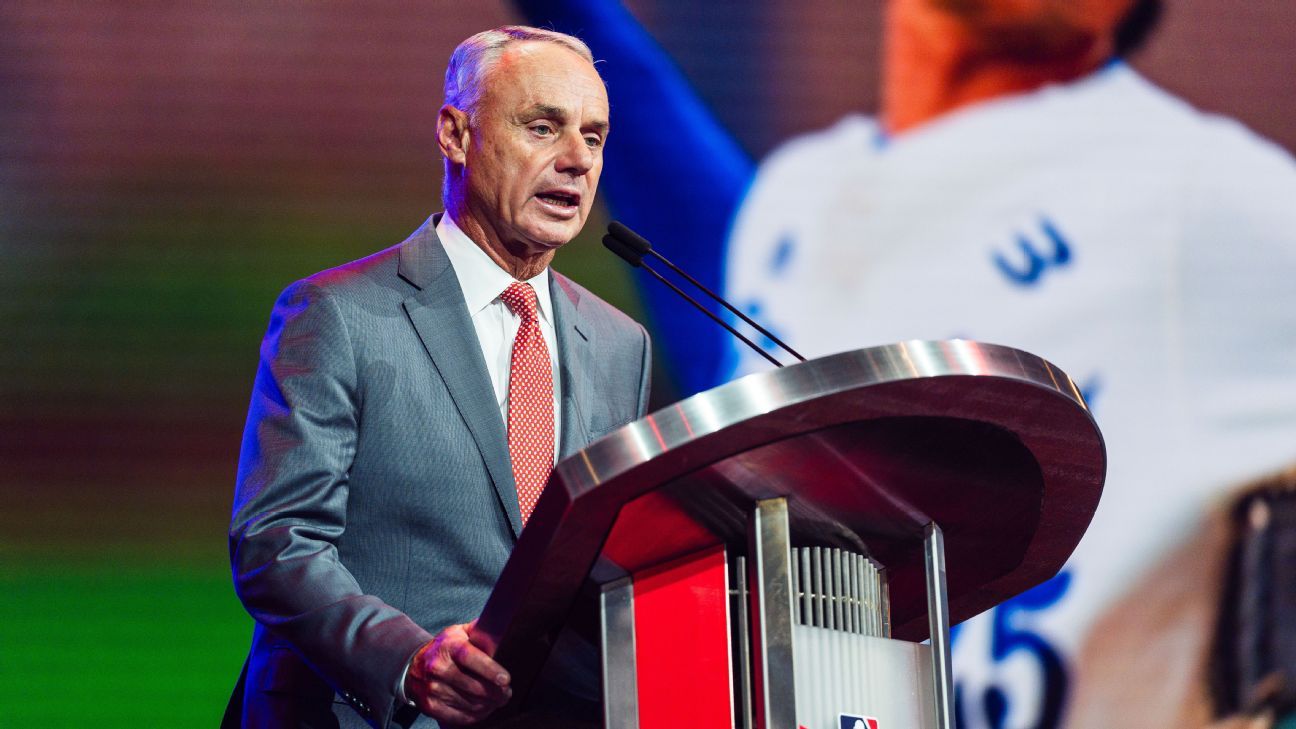URGENT UPDATE: Major League Baseball (MLB) Commissioner Rob Manfred announced just moments ago that the league is on the brink of securing significant broadcast agreements with four major media companies for the upcoming 2026 through 2028 seasons. During a live Q&A following the “Tuned In” event hosted by Front Office Sports, Manfred revealed that MLB is finalizing deals with ESPN for regular-season broadcasts, NBCUniversal for the wild card series and Sunday night games, Netflix for the All-Star Home Run Derby, and Apple TV for additional regular-season games.
This development is critical for MLB fans and stakeholders as it reshapes how baseball will be consumed in the coming years. Manfred emphasized the urgency of these agreements, stating, “We have, kind of have agreements in principle. We still have issues that need to be resolved.” The deals are expected to enhance viewership options and engage a broader audience.
The anticipated contracts are especially noteworthy as ESPN had previously opted out of its Sunday night game deal and Home Run Derby rights. Manfred expressed optimism, saying, “If those are the agreements that get all the way through and finish, we feel like we made real progress.”
Discussions with ESPN resumed this past July at the Allen & Co. Sun Valley Conference, where a mutual interest in partnership was rekindled. “It took the parties a little while to think creatively about how we could do that and meet goals that were not exactly aligned,” Manfred explained.
Manfred highlighted a shift in how MLB will negotiate rights packages starting in 2029, suggesting there will be more national games available. “Local is not going away when you have 2,430 games. We’re going to need a local solution for those games that are not available in national packages,” he stated. This indicates a strategic pivot that could significantly impact local broadcasting.
The potential deals also include in-market rights for teams in Arizona, Cleveland, Colorado, Minnesota, and San Diego. With a growing emphasis on national exposure, Manfred noted, “Getting more national and getting more games out there on a national basis has to be your No. 1 priority.”
Fans and industry analysts alike are eager to see how these agreements unfold, as they hold significant implications for how MLB will engage with its audience in the future. The urgency of finalizing these deals cannot be overstated, as they represent a pivotal juncture in the evolving landscape of sports broadcasting.
Stay tuned for further updates as MLB pushes to finalize these transformative agreements. This is a developing story, and we will continue to bring you the latest on the potential changes in baseball broadcasting.
